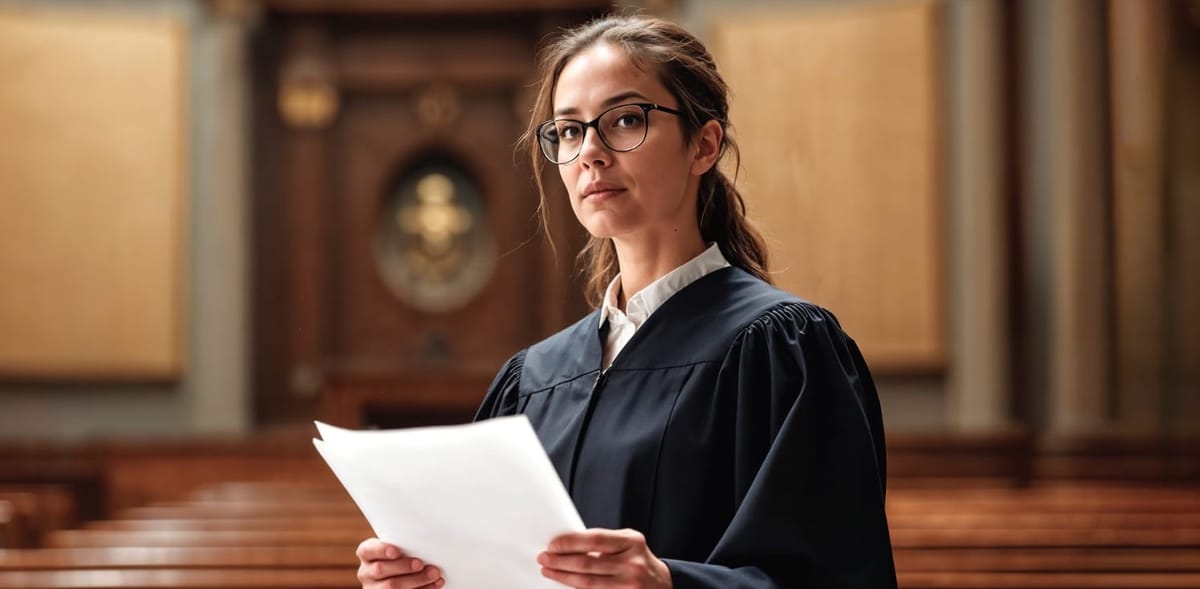Federal Judge Blocks Immigration Arrests at Certain Places of Worship

A federal judge in Maryland has ruled against the Trump administration's immigration enforcement actions at certain places of worship, following a lawsuit filed by Quakers, Cooperative Baptists, and Sikhs. The plaintiffs challenged the administration’s reversal of a Biden-era policy that had previously restricted immigration arrests at protected locations.
U.S. District Judge Theodore Chuang granted a limited preliminary injunction, preventing immigration enforcement at places of worship owned or used by the plaintiffs. The ruling does not apply nationwide but specifically protects the religious groups involved in the lawsuit.
The faith groups argued that the policy allowing immigration arrests at their places of worship violates their First Amendment rights and places an undue burden on their religious practices. Judge Chuang, appointed by former President Barack Obama, acknowledged that the threat of enforcement had reduced attendance at religious services, impacting not only undocumented immigrants but also legal residents fearful of being mistaken for unauthorized individuals. The court determined that the policy likely infringes on the Religious Freedom Restoration Act and the First Amendment.
"Where plaintiffs' communal religious exercise is significantly and adversely affected by reductions in attendance due to immigration enforcement actions, the presence of armed law enforcement officers at places of worship will negatively impact the ability of Quakers and Sikhs to practice their faith freely," Judge Chuang stated in his 59-page opinion.
The court found that the 2025 policy places a substantial burden on religious exercise, especially for the Cooperative Baptists, whose services focus on immigrant communities. The ruling noted that immigration enforcement actions at these places of worship would pressure religious leaders to alter their practices, preventing them from worshipping with a diverse congregation and impeding a core aspect of their faith.
Judge Chuang ordered the Trump administration to reinstate a 2021 memorandum issued by then-Homeland Security Secretary Alejandro Mayorkas, which barred immigration enforcement actions at protected locations, including places of worship, schools, and medical facilities. While the ruling mandates adherence to the 2021 policy, it does not prevent arrests in or near places of worship when supported by a warrant.
Skye Perryman, President and CEO of Democracy Forward, which represented the religious groups, praised the court’s decision. "For decades, the government has recognized that everyone, regardless of immigration status, should be able to worship freely without fear of a government raid. Religious institutions should not have to fight in court to defend their constitutional rights," she said in a statement.
The Trump administration’s directive revoking the Biden-era policy was issued on the first day of his term as part of broader efforts to tighten immigration enforcement. Homeland Security officials defended the move, stating that "criminals will no longer be able to use America's schools and churches as safe havens to evade arrest. The Trump administration trusts law enforcement to use their best judgment in enforcing immigration laws."
The Quakers, also known as the Religious Society of Friends, have practiced their faith in the U.S. since the 1600s and emphasize communal worship. The Cooperative Baptist Fellowship, a network of over 1,400 congregations, operates in 37 states, the District of Columbia, and Puerto Rico, with many churches serving immigrant communities. The Sikh Temple, located near Sacramento, California, serves a congregation of approximately 30,000 people, nearly half of whom are immigrants.
This ruling represents a significant legal victory for religious institutions advocating for immigrant rights, reinforcing protections for faith communities against government interference in their worship practices.
Source: CBS News
